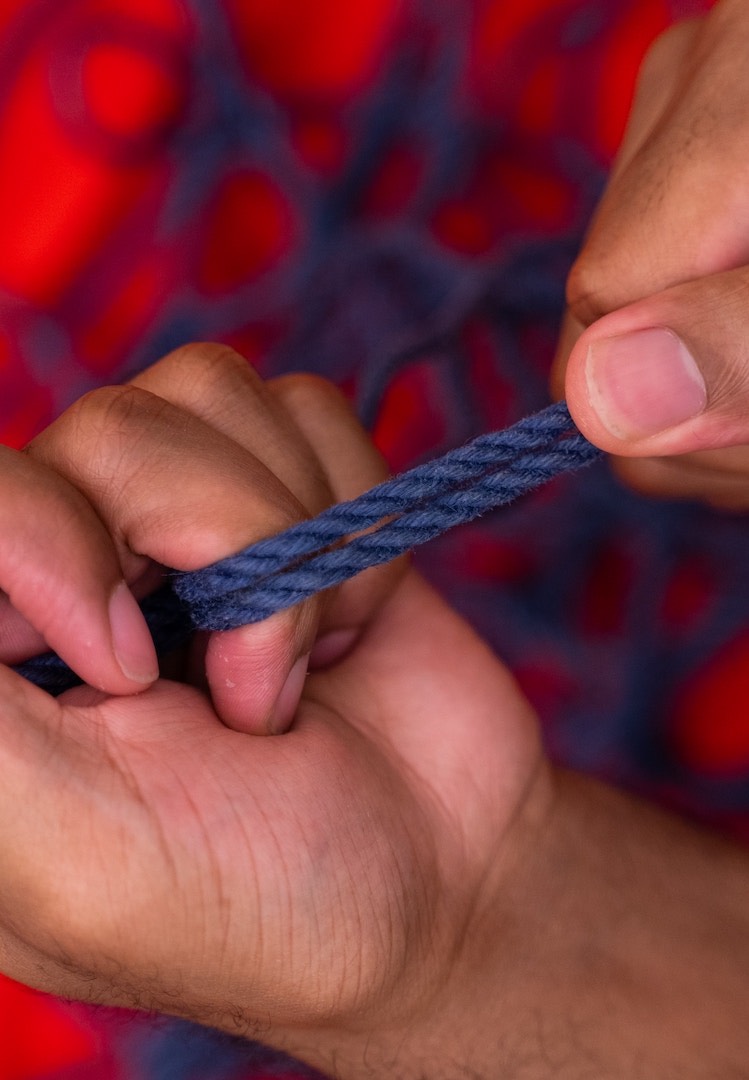Are you experiencing ‘compulsory heterosexuality’? An expert weighs in
WORDS BY LIZZIE MULHERIN
“It’s led to the general social assumption that all people are heterosexual, and placed a stigma on those of other sexual identities.”
Sexuality is an inherently complex and personal part of every human being. It’s also one of the most judged. For some, it’s fluid and ever-changing. For others, it’s fairly fixed. While the conversation and cultural norms around sexuality are evolving, for many, exploring attraction outside the traditional confines of cis heterosexuality is still fraught with fear of judgement, rejection and discrimination.
Interested to hear how others navigate the world? Head to our Life section.
Heteronormative roots run so deep that we may not even realise when they’re impacting our own lens. The term ‘compulsory heterosexuality’ (also known as comphet), which refers to the assumption that heterosexuality is the default and superior sexuality due to conditioning, has been gaining traction in recent years.
Much like the topic it tackles, the term is layered. So we asked Christina Rafe, Sex Therapist at Good Vibes and a LoveHoney ambassador, to break it down for us.
Hi Christina. Firstly, what is compulsory heterosexuality?
It describes those who have been socially conditioned through a heteronormative and cisgendered lens [to believe] that relationships and sexual activity ‘should’ be between a cisgendered man and cisgendered woman. It’s led to the general social assumption that all people are heterosexual, and placed a stigma on those of other sexual identities.
For those socialised as women, comphet also refers to the social conditioning that women ‘should’ be seeking a man to marry and have children with, and that we should seek to be attractive to men.
Why has the term gained traction in recent years?
The unravelling of patriarchal views and systems that have discriminated against people of colour, women, those with disability and queer folk has resulted in the challenging of many social constructs, including the assumption of heterosexuality. Platforms such as Instagram, TikTok and media publications are exploring, normalising and celebrating all sexual and gender identities.
Increasingly accessible education and advocacy around LGBTQIA+ folk have fostered the challenging of traditional social constructs regarding sexuality and have increased the traction of terms, including comphet.
How can someone know if they ‘have’ comphet?
There’s no step-by-step guide to sexuality as it is unique to every person, but given most of us have been raised in a culture of heteronormative views (and stigmatisation of LGBTQIA+ identities), it’s probably fair to say that any one of us could be comphet. Generally speaking, if you are someone who experiences romantic or sexual attraction to people outside of what is considered heterosexual, you may want to unpack and explore the ways that heteronormative social conditioning has impacted your beliefs, behaviours and relationships.
It’s important to affirm here that your attraction to certain people or who you have sex with does not alone define your sexuality, and that you are the only person who can fully explore and define your sexual identity. For example, if you’ve had sex with someone of the same gender identity as you, this does not immediately mean you are bi, gay or not heterosexual.
There are many reasons why we might engage in behaviours that are outside of our overall sexual identity (curiosity being just one reason). Sexuality exists on a spectrum and The Kinsey Scale is a good resource to explore this further. Refer to question five for how you might explore comphet further on an individual level.
How can it impact relationships and dating?
Social conditioning that depicts heterosexuality as superior to other sexual identities can impact who people choose to date and have relationships with. It is not uncommon in therapy sessions to hear clients explain that they would be interested in dating/having relationships outside the constructs of heterosexuality if not for fear of judgement, shaming or abandonment by their family, friends and/or religious communities. Comphet can also limit the ability for someone to meet and date people outside of the hetero-norm by identifying as ‘straight’ on dating apps and singles events rather than voicing openness to other sexual and relational identities.
In practice, I have seen clients in long-term heterosexual relationships who are now exploring their sexual identity/ies) as not simply confined to monogamous and heterosexual dynamics and relationship styles. While less common now than 10-plus years ago, some are acknowledging their comphet and ending relationships to own their true sexual identities.
If someone suspects they have been conditioned to be comphet but they want to explore/detangle/work through this, what do you recommend doing?
- Reflect on how you learnt about sexuality and relationships, and challenge any beliefs that have been formed solely on the basis of heteronormativity.
- Consider whether you assume others are heterosexual unless you hear otherwise. If you do, start challenging that and acknowledging that all sexual identities are valid and equal.
- Be curious with yourself about your sexual interests, desires and sexual behaviours. Consider if there are any sexual activities that you have resisted exploring due to heteronormative messaging. If so, reflect on why this might be and challenge any unhelpful narratives.
- Refer to resources such as LGBTQIA+ media pages, books and community groups for education, advocacy and support.
- An LGBTQIA+ friendly therapist can be a great support in unlearning heteronormative constructs and exploring with curiosity and non-judgement what you might be interested in from a relational and sexual perspective.
Is there anything else you’d like to add?
If you’re someone who is exploring your sexual identity, don’t feel the need to find a label for your sexuality. Labels can feel empowering to some, but there is no need to define yourself in a certain way if it doesn’t feel right for you. Consider also that your sexual interests and identity may change over time and this is completely fine! Regardless of your sexual identity, sexual desires, interests and activities will change and grow with time and experience.
For more on compulsory heterosexuality, head here.










